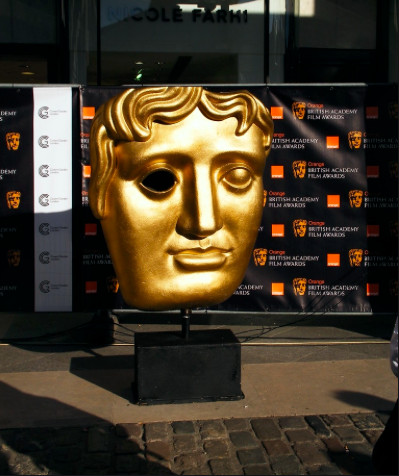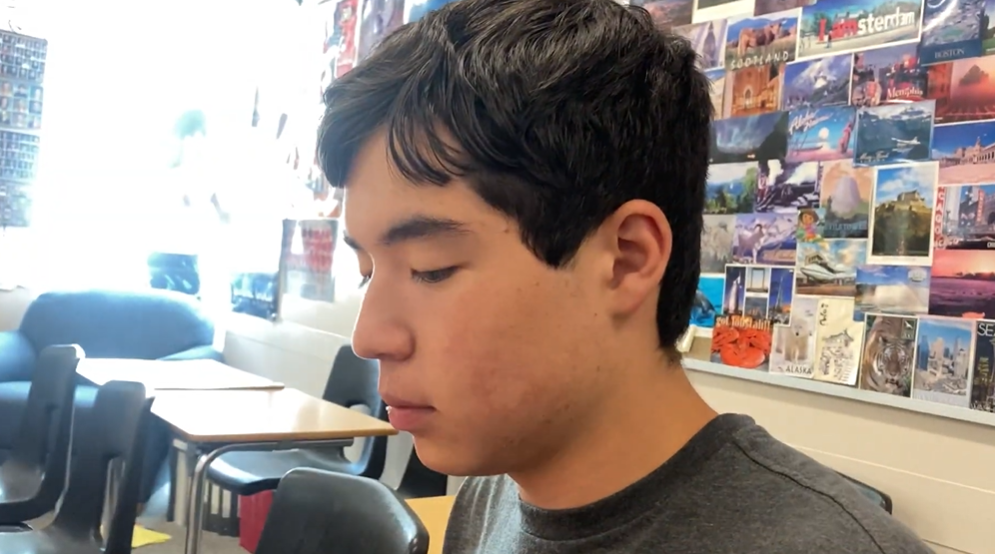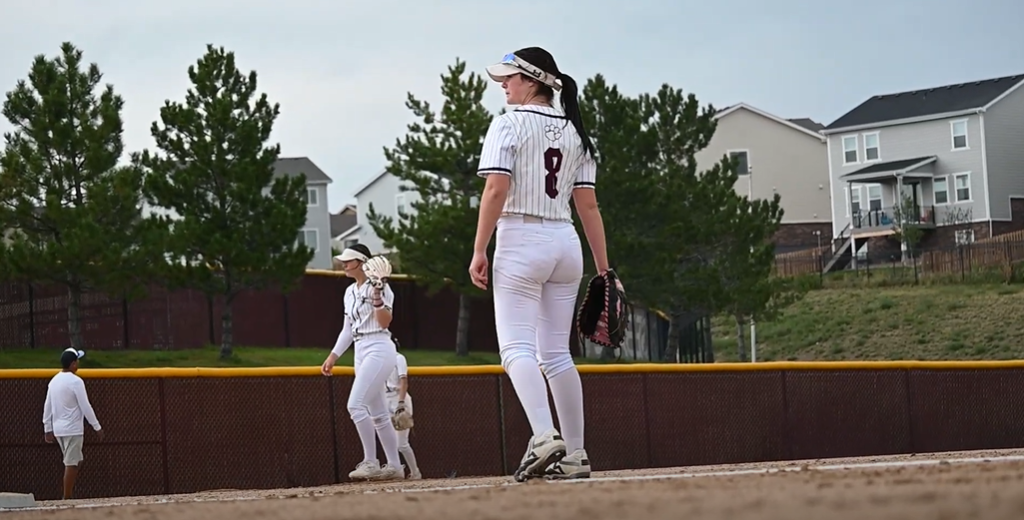#BAFTAsSoWhite: Another Backslide
Another season of film awards is upon us and as nominees for different prestigious film awards are revealed, actors and viewers alike are shocked by the whiteness and maleness of the lineup. The BAFTAs are today and after the reveal of the nominees and Cynthia Erivo’s refusal to perform, this awards ceremony should be… interesting.

A classic BAFTAs mask in traditional large style appears on a red carpet. The BAFTAs, standing for British Academy for Film and Television Arts, are held in early February, before the Oscars. This year, the nominees are suspiciously Caucasian and male, a discriminatory lineup that is not tolerated by Hollywood’s elite. Photo courtesy of Chloe (CC BY 2.0)
February 2, 2020
The phrase used to describe the phenomenon of the exclusion of people of color in prestigious film awards is disappointing, but not surprising. The 2016 Oscar Awards kickstarted the hashtag #OscarsSoWhite, after a shockingly pale lineup of nominees. The term has been shifted to #BaftasSoWhite, considering the whitewashed faces of all those nominated for the British film ceremony. Here’s how people of color got gypped at the nominations and why it’s such a big deal.
The BAFTAs are organized by the British Academy of Film and Television Arts, probably where the acronym for the award ceremony comes from, and has been a long-running film event since the first ceremony in 1949. This occasion is another staple in classic movie awards season, fitting right in with the Golden Globes, Producers and Directors Guild of America, Critics Choice Awards, Screen Actors Guild, Grammys, and the Oscars.
“[The BAFTAs] are the British’s biggest award ceremony for film. They are much like the Oscars, recognizing the year’s acclaimed pieces of work in cinema,” said Taylor May (10). The BAFTAs fall about a week before the Oscar Awards, which only seems to heighten its mystique and prestige. The nominees are announced all the way at the beginning of January yet the ceremony is an entire month later. And that’s where the issue of the 2020 BAFTA Awards begins.
At the announcement of the nominations on January 7, with the dust following the Golden Globes barely settled, a cry arose from Hollywood’s most elite. Every single actor of the 18 nominations is white. The directors’ section lacked diversity in gender, as no women were nominated.
Are we surprised?
Brianna Martinez argues no.
“I think the award show is criticized a lot because of that hashtag and some people might discredit the award even though in my opinion, all of the nominees this year were rightfully nominated,” said Martinez (12) of the power of the hashtag across the globe and film industry and its impact on the BAFTAs themselves.
The link below is a CNN article addressing the concerns of actors recognizing the white and male-dominated nominations, as well as enumerating the nominations themselves in categories like Best Director, Best Adapted Screenplay, and Outstanding Debut by a British Writer, Director or Producer.
https://www.cnn.com/2020/01/07/entertainment/bafta-nominations-2020-gbr-intl-scli/index.html
Can the trend in awards ceremonies really be explained, instead of just put down to institutionalized racism and sexism in the film industry? “I think that people in Hollywood still don’t trust women to make these big movies, I don’t really know why, and that’s why we only know of male directors therefore only nominating male directors,” said Martinez in the way of an explanation, a way to understand the commonalities between whitewashed ceremonies. “I can name tons of directors whose movies I’ve loved but they are all male and that’s because directing is a male-dominated job.”
Cynthia Erivo, the incredibly talented lead of “Harriet” and Broadway star, was invited to sing at the BAFTAs in February. She refused the invitation, saying she refused to be the token black performer at an awards ceremony that doesn’t recognize people of color. “I think Hollywood is slowly starting to become more gender-equal but they still aren’t exactly there yet,” Martinez added. “I hope women of all ethnic backgrounds can be cast in as many roles possible because it will change the movie industry for the better.”
Click below to read more about Erivo’s stance.
https://www.vulture.com/2020/01/cynthia-erivo-refused-baftas-invite-over-all-white-nominees.html
The problem is recurring, as is evidenced by the Oscars’ similar issue and now the BAFTAs. Even with the creation of trending hashtags like #BAFTAsSoWhite, it doesn’t seem to change anything. However, May argues that they do start an important conversation in the film industry.
“Hashtags like that start meaningful conversations that need to be talked about,” said May of the importance of these movements, even if they seem futile. Looking forward to the event is less enjoyable when there is so much racial and gender-related controversy surrounding it. “I really do think that end of the day, major award ceremonies that consist of white, male men are really unencouraging for young actors,” said May about the nature of film awards when there is such monotony in the nominees and therefore the winners. “Especially as a woman, it almost comes off as if after all of these years of progress, Hollywood is falling back into favoring the male white men populace.”
Maybe Hollywood’s trouble with the topic of equality will rub off on its British counterpart. Actors and viewers alike can dream.
“I can only hope young actors will actually be inspired by the lack of diversity in movies and want to push to be the generation that ends the lack of said diversity,” said Martinez.
Below is an article from the NY Times, with more information about the awards’ controversy itself.
https://www.nytimes.com/2016/12/14/movies/baftas-so-white-but-theyre-working-on-it.html
Clock in at 2:00 on February 2 to view the BAFTAs Award Ceremony.



